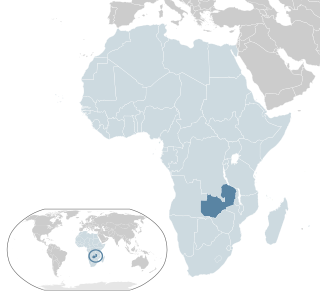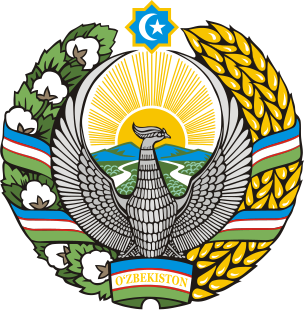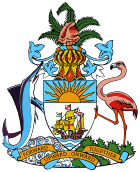
Jus soli, meaning "right of the soil", commonly referred to as birthright citizenship in the United States, is the right of anyone born in the territory of a state to nationality or citizenship.
Jus sanguinis is a principle of nationality law by which citizenship is not determined by place of birth but by having one or both parents who are citizens of the state. Children at birth may automatically be citizens if their parents have state citizenship or national identities of ethnic, cultural, or other origins. Citizenship can also apply to children whose parents belong to a diaspora and were not themselves citizens of the state conferring citizenship. This principle contrasts with jus soli.

The conferment of a person, as a citizen of India, is governed by Articles 5 to 11 of the Constitution of India. The legislation related to this matter is the Citizenship Act 1955, which has been amended by the Citizenship (Amendment) Act 1986, the Citizenship (Amendment) Act 1992, the Citizenship (Amendment) Act 2003, The Citizenship (Amendment) Act, 2005 and Citizenship (Amendment) Act, 2015.
Omukama of Bunyoro is the title given to rulers of the East African kingdom of Bunyoro-Kitara. The kingdom lasted as an independent state from the 16th to the 19th century. The Omukama of Bunyoro remains an important figure in Ugandan politics, especially among the Banyoro people of whom he is the titular head. He is closely related to the Omukama of Toro Kingdom.
Belonger status is a legal classification normally associated with British Overseas Territories. It refers to people who have close ties to a specific territory, normally by birth or ancestry. The requirements for belonger status, and the rights that it confers, vary from territory to territory.
This article is about British nationality law in respect of citizens of Ireland. The latter is referred to in British nationality law as the "Republic of Ireland" and was previously referred to as "Eire" (sic) between 1937 and 1949 and as the Irish Free State between 1922 and 1937..

Malaysian nationality law is the law of Malaysia that deals with citizenship and other forms of nationality. Nationality law is mentioned in the Constitution of Malaysia.
A British protected person (BPP) is a member of a class of certain persons under the British Nationality Act 1981 associated with former protected states, protectorates, mandated and trust territories under British control. The inhabitants of these former states or territories were never automatically entitled because of their birthplace to become British subjects or citizens, but were given the status of British protected person instead.

The Philippine nationality law is based upon the principles of jus sanguinis and therefore descent from a parent who is a citizen or national of the Republic of the Philippines is the primary method of acquiring Philippine citizenship. This is contrasted with the legal principle of jus soli where being born on the soil of a country, even to foreign parents, grants one citizenship. For those born in the Philippines to non-Filipino parents, the Administrative Naturalization Law of 2000 provides a path for administrative naturalization for those who qualify.

The Constitution of Nigeria is the supreme law of the Federal Republic of Nigeria.

The President of the Republic of the Union of Myanmar is the head of state and head of government of Myanmar and leads the executive branch of the Burmese government, and heads the Cabinet of Myanmar.
The right of foreigners to vote in the United States has historically been a contentious issue. A foreigner, in this context, is an alien or a person who is not a citizen of the United States.

Lesbian, gay, bisexual, and transgender persons in Zambia face legal challenges not faced by non-LGBT citizens. Same-sex sexual activity is illegal for both males and females in Zambia.

The Constitution of Uzbekistan was adopted on 8 December 1992 on the 11th session of the Supreme Council of Uzbekistan. It replaced the Constitution of the Republic of Uzbekistan of 1978. It is the supreme law of the Republic of Uzbekistan. The Constitution of Uzbekistan contains six parts and it is further divided into 26 chapters.
Article One of the Georgia State Constitution describes the Georgia Bill of Rights, a set of forty paragraphs which enumerate the Rights of Persons, the Origin and Structure of Government and other General Provisions. The Georgia Bill of Rights was written by Thomas R.R. Cobb under the title Declaration of Fundamental Principals, as part of the Georgia Constitution of 1861 when the State of Georgia seceded from the United States of America and joined the Confederate States of America.

The Constitution of Kenya is the supreme law of the Republic of Kenya. There have been three significant versions of the constitution, with the most recent redraft being enabled in 2010. The 2010 edition replaced the 1963 independence constitution. The constitution was presented to the Attorney General of Kenya on 7 April 2010, officially published on 6 May 2010, and was subjected to a referendum on 4 August 2010. The new Constitution was approved by 67% of Kenyan voters. The constitution was promulgated on 27 August 2010.

Ghana amended its nationality law in 2000, to the 2000 Ghana Citizen Act Dual Citizenship Scheme, which came into effect from Friday, 1 November 2002, in accordance with the provisions of the Citizenship Act 2002. Applicants eligible for dual citizenship are those who hold citizenship of any country in addition to the citizenship of Ghana. In these instances, all applicants are required by law to provide evidence of their Ghanaian nationality or their country of birth. Its intention was to increase immigration of skilled labour, but the law has been criticised for not giving full citizens rights as native-born citizens.

Nigerian nationality law is the law of Nigeria which concerns citizenship and other categories of Nigerian nationality.

States have passed state equal rights amendments (ERAs) to their constitutions that provide various degrees of legal protection against discrimination based on sex. With some mirroring the broad language and guarantees of the proposed Federal Equal Rights Amendment, others more closely resemble the Equal Protection Clause of the Fourteenth Amendment.











